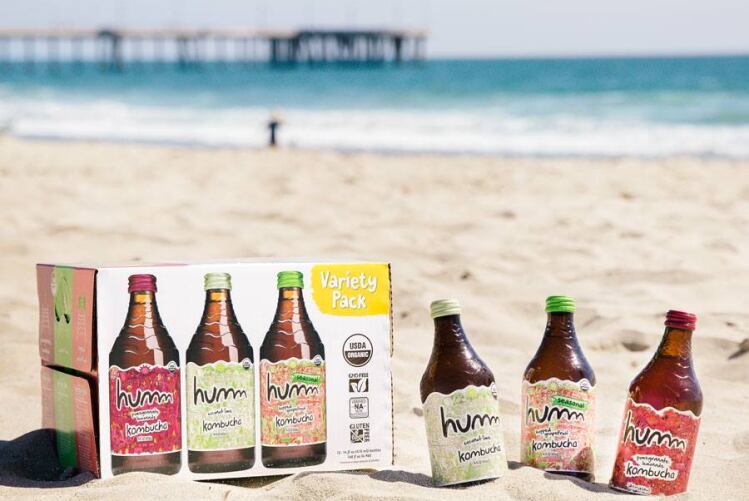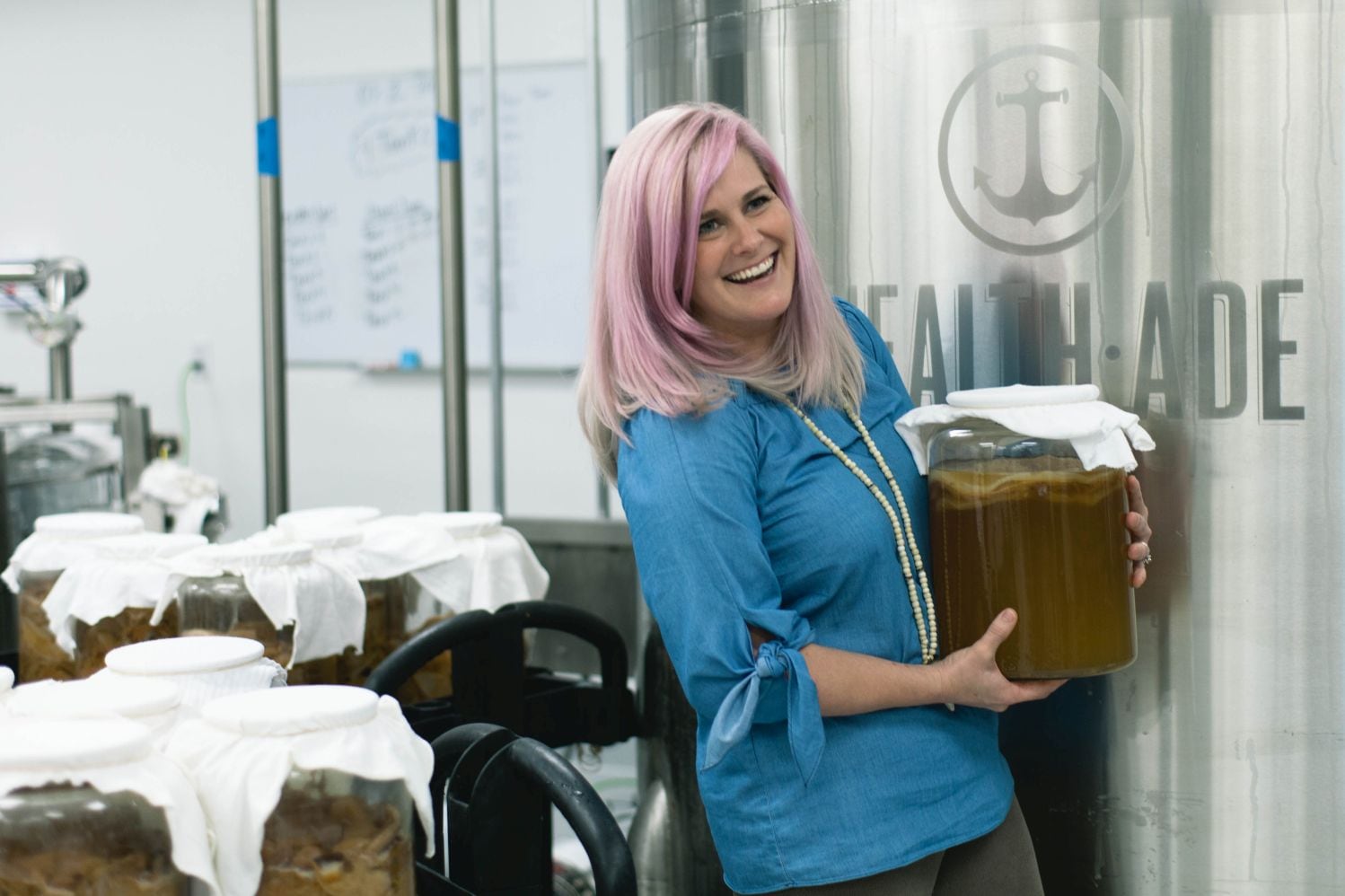When the east coast facility – due to open in 2019 – is operating at full capacity, Humm will be able to support sales of “upwards of $400m,” said co-founder Jamie Danek, who started delivering kombucha door-to-door in a Toyota Prius in 2009 with co-founder Michelle Mitchell and is now supplying thousands of retailers from Walmart, Albertsons, and Safeway, to Costco, to Target, and Whole Foods.
“With the new facility, we won’t need to open another one for many years,” she told FoodNavigator-USA. “It’s also going to make us more efficient – and it’s better for the environment - because upwards of half of our business, if not more, is starting to come from the east coast, and shipping refrigerated glass bottles from the west coast is very expensive.”
She added: “Last year was much more about distribution gains and getting into new accounts; this year and next, it’s all about velocity and activating the brand.
“We were very scrappy for a long time, so we were not able to grow as fast as some other brands that took money far earlier, but we were also able to retain control of more of our company,” added Danek, who said Humm raised $10m last year and is looking to do another financing round in 2019.
The kombucha category is exploding
While the natural channel “has been on the kombucha train for a while now,” conventional retailers have been playing catch up over the past couple of years, significantly expanding their offer, claimed Danek.
“In the mass channel, even 18 months ago, we were the only people at the party other than GT’s and KeVita in many accounts. But this year it’s exploding, with many retailers going from three brands to 10 or more. The only retailer not expanding space for kombucha right now is Kroger, which is focusing more on cold brew coffee. But Walmart, Publix, Safeway and Target have all expanded their kombucha sets dramatically.”

Some companies feel that Americans should learn to ‘acquire’ the taste of kombucha, whereas at Humm our number one goal is acceptability
As to how kombucha companies are differentiating themselves, some are building lifestyle brands, some are focusing on culinary trends/unique flavors, some are building a low-sugar positioning, and some seek to highlight their ‘authentic’ production methods and ‘raw’ credentials, said Danek.
While Humm is a premium product manufactured via a traditional fermentation process beginning with green and black tea, adding sugar, and fermenting the mix with yeast and bacteria, it has also deliberately aimed for a more accessible flavor profile than other brands, she claimed.
“Our kombucha tastes incredible, it’s a gateway product to get into the category because it’s so drinkable. I think some companies in the category feel that Americans should learn to ‘acquire’ the taste of kombucha, whereas at Humm our number one goal is acceptability. Our products are premium, live, raw, organic, but also priced in a way that’s accessible because kombucha is not just for the elite, it’s for everybody.”
The more accessible taste is not coming from adding a ton of sugar, however, she stressed: “Ours are in the middle range from a sugar content perspective, and we’ve been transparent about labeling them from day one, we’re talking about 5-10g per serving, which is still way lower than soda.”
Compliance: New patent-pending process ensures alcohol is consistently below 0.5% abv
Humm – one of several kombucha brands sued over alleged mislabeling of its alcohol and sugar content - will not comment on the litigation beyond saying it stands by its claims, but says that a new patent-pending process ensures that its kombucha “will not ferment [in the bottle] when unopened at room temperature.”
Danek is vague about the means by which the alcohol level is controlled to remain consistently below 0.5% abv: she refers to a “closed” fermentation process that does not allow wild yeast that’s in the air to come into the product and change the DNA of the SCOBY (symbiotic culture of bacteria and yeast) over time. However, she says Humm is not using heat pasteurization or an aggressive filtration process prior to bottling that eradicates all residual yeast, or spinning cone technology (deployed by brands such as Brew Dr to remove alcohol post the fermentation).
“Fermentation not continuing in the bottle at all. I cannot tell you how we do it, but it’s astounding, and proprietary, and it’s a pretty big deal, to do it with a live raw product is amazing – a first for the industry. The end result is that our kombucha is live and raw and the alcohol is completely controlled, even if it’s not refrigerated for a week. We’ve basically figured out how to retain the health benefits and be compliant.”
Bacillus Subtilis probiotic added
Humm has also added a well-characterized probiotic strain to its kombucha to ensure it can safely describe its products as ‘probiotic,’ said Danek, although she says this is for legal reasons and not because the new process harms the live bacteria produced during the fermentation process.
The company described the probiotic it adds as ‘Bacillus Subtilis’ [which describes the genus and species of bacteria, not the strain – and the benefits of probiotics and strain-specific], with a spokesperson noting that the “brand does not share the nitty gritty strain info.”
According to Danek: “At the time of bottling, each 14 oz bottle of Humm Kombucha now contains 2 billion probiotic cultures. Our kombucha contains the Bacillus Subtilis strain, which is a Non-GMO probiotic. We add it in there so we can safely say it’s a probiotic product to the consumer. We have been looking at this for two years but it is quite expensive.”


